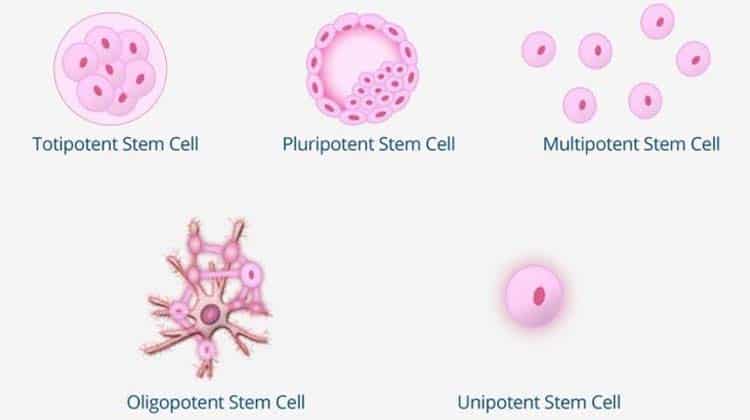A Brief Overview of Stem Cells
Stem cells are primitive, undifferentiated cells that can potentially turn into a wide variety of cell types. Liver cells, blood cells, and muscle cells are only a few of the specialized types that have their origin in stem cells. Aside from their ability to differentiate into cells with specific functions, they can also divide or renew themselves indefinitely.
Because they can repair and regenerate damaged tissue, stem cells continue to command the attention of biomedical researchers who seek insights into the prevention and treatment of various diseases. In the 21st century, researchers have made several breakthroughs that have broadened our understanding of stem cells, which are expected to grow in importance over the coming years as an essential laboratory research tool.
Types of Stem Cells
Not all stem cells have the same degree of differentiation ability. For that reason, they are commonly categorized according to the types of cells they can differentiate into. These categories run as follows:

Note: From Cade Hildreth, “Do you know the 5 types of stem cells?”
(https://bioinformant.com/do-you-know-the-5-types-of-stem-cells-by-differentiation-potential/)
Totipotent – Capable of turning into any type of cell.
Pluripotent – Capable of turning into a cell from the three primary cell layers (mesoderm, endoderm, and ectoderm).
Oligopotent – Capable of turning into several cell types.
Multipotent – Capable of turning into a closely related type of cell.
Unipotent – Capable of turning into only one type of cell.
Origins of Stem Cells
Stem cells can be classified into three distinct groups, according to their origin:
Embryonic stem cells
– These are pluripotent cells that derive from embryos in the blastocyst stage (1-2 weeks after fertilization).
Adult stem cells
– They are present in small quantities within, and can be derived from, most tissues found in adults. Generally, unipotent or multipotent, they cannot differentiate into as many types of cells as embryonic types.
However, it was discovered in 2006 that adult stem cells can be altered in a laboratory to behave very similarly to embryonic stem cells—that is, with the ability to change into many types of cells. These modified adult stem cells are known as induced pluripotent stem cells (iPSCs).
Mesenchymal stem cells (MSCs) are another type of adult stem cell that are derived from the stroma of the bone marrow.
Cancer stem cells
– Derived from tumors and hematological cancers (e.g., chronic lymphocytic leukemia), they have the characteristics of normal stem cells, including the ability to renew themselves. Discovered in the late 1990s, they hold special promise for cancer researchers.
Uses of Stem Cells
Although the full potential of stem cells has yet to be realized, they already play a major role in the research and treatment of various diseases and conditions. Present-day applications of stem cells include the following:
- ●Disease research – Researchers increasingly rely on stem cells for insights into diabetes, arthritis, heart disease, Alzheimer’s disease, Parkinson’s disease, and many other disorders of the body in addition to various cancers.
- ●Genetic research – Stem cells are useful here as a means of pinpointing genetic defects.
- ●Drug research – Stem cells can also be used to test the safety and efficacy of new drugs.
- ●Bone marrow transplants – This procedure involves the use of hematopoietic (blood) stem cells to replace diseased or damaged bone marrow.
Researchers can turn to AcceGen for a wide variety of human and animal stem cells, including embryonic, adult, cancer, mesenchymal, and induced pluripotent stem cells. Visit our website for more details on how to purchase stem cells from us. We can be reached at inquiry@accegen.com.
About AcceGen
Founded in 2016, AcceGen has already established itself as a premier biotech company whose genomic research solutions are used by many researchers and organizations in the fields of biotechnology, pharmaceutics, cell biology, and specialty ingredients. AcceGen is based in Fairfield, New Jersey.
Comments
Post a Comment